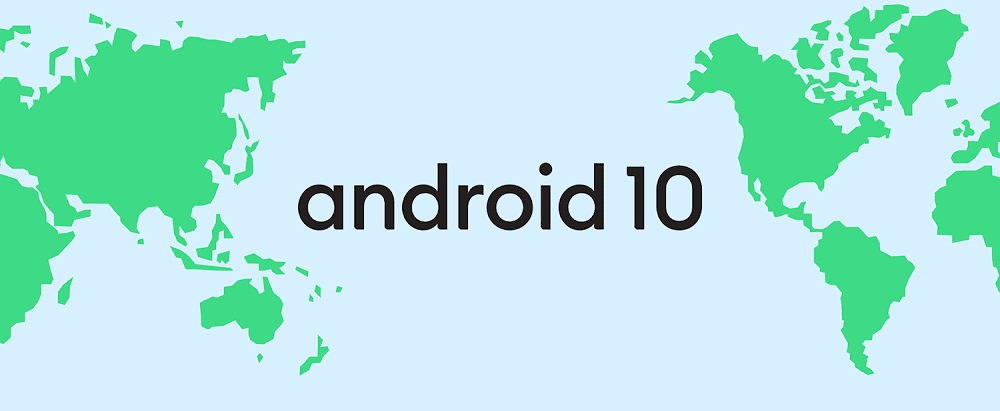
Android 10
As many of you will know, Google has named each version of Android with a codename in reference to a dessert or sweet. But this will change with Android Q. In addition to introducing a new naming scheme, Google is also updating the branding strategy for Android.
Android Q will be called Android 10, which will align Google's mobile operating system with Microsoft's Windows 10 and Apple's iPhone X. The new name comes with a new logo and a new color scheme.
In its blog post, Google explained that:
“In the last decade, the Android platform has created a thriving community of manufacturers and developers reaching a global audience with their devices and applications. This solution now extends to tablets, cars, watches, televisions and more, with more than 2.5 billion active devices worldwide.
As we continue to develop Android for all members of the community, our brand needs to be as inclusive and accessible as possible, and we believe we can do better in a number of ways.
“First, we change the way we name our versions. Our engineering team has always used internal code names for each version, based on tasty treats or desserts, in alphabetical order.
“As a global operating system, it is important that these names are clear and accessible to everyone in the world. Therefore, this next version of Android will simply use the version number and will be named Android 10. We believe this change helps make version names simpler and more intuitive for our global community.
And while many "Q" desserts have been tempting, we think with 10 and 2.5 billion active devices, it was time to make that change.
About Android 10
In March, Google released a first version of Android 10. A major change in this version is an additional privacy setting for accessing a site, which will allow users to limit the dissemination of this information to an application. only when said application is in use, instead of relying solely on a general switch to allow or not share this information with all applications.

In this sense, Google explained that
“Android Q gives users more control over when applications can access the device's location. When an Android Q application requests access to the location, the dialog box is displayed. This dialog allows users to grant location access in two different extents: in use (foreground only) or anytime (foreground and background).
"To support the additional control users have over an app's access to location information, Android Q introduces a new location authorization."
Google is also imposing new limits on the app's access to content, such as photos, videos and audio, as well as all the files downloaded to the devices.
To give users more control over their files and reduce file clutter, Android Q changes the way applications can access files on the device's external storage.
Android Q replaces permissions READ_EXTERNAL_STORAGE y WRITE_EXTERNAL_STORAGE with more detailed and media-specific permissions and applications that access their own files on an external storage device do not require specific permissions.
These changes affect the way your application saves and accesses files on external storage.
Isolated storage sandbox for private application files: Android 10 assigns each application an isolated storage sandbox to an external storage device, such as / sdcard.
No other application can directly access sandbox files in your application. Because the files are private in your application, you no longer need permissions to access your own files and save them to external storage.
This change makes it easy to protect the privacy of user files and reduces the amount of permissions your application requires.
Shared collections for multimedia files: if your application creates files that belong to the user and the user expects to keep them, when your application is uninstalled, these are saved in one of the current multimedia collections, also called shared collections.
Source: https://www.blog.google/